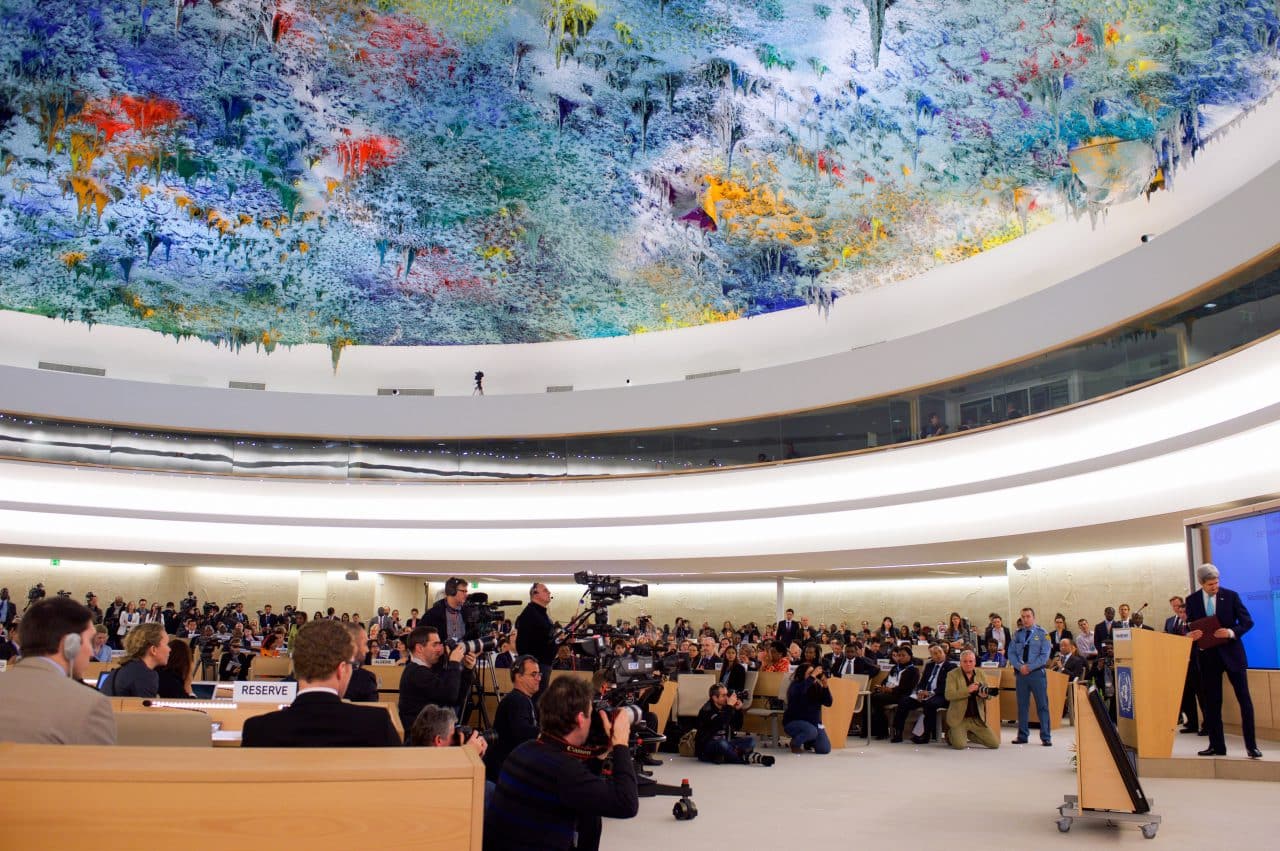Access Now recently submitted evidence on the digital rights records of both South Sudan (PDF) and Uganda (PDF) for the United Nations Human Rights Council Universal Periodic Review (UPR). The Universal Periodic Review is the cooperative process by which the Human Rights Council reviews the human rights records of all 193 U.N. member states.
Our submissions note ways that South Sudan and Uganda fail to comply with obligations under international human rights law to protect and promote free expression, privacy, Net Neutrality, business and human rights, and digital security. We offer specific recommendations, and will push delegates in Geneva to take them up.
Here’s a look at the digital rights landscape in South Sudan and Uganda, and the implications for people at risk of human rights violations in these countries.
Unity in South Sudan
Two years ago, there was only one Sudan. After a referendum, citizens decided to have two separate countries: Sudan and South Sudan. Today, both countries face grave security and human rights threats, online and off.
To the country’s UPR review, Access Now submitted comments pointing out that while some progress has been made, South Sudan has failed to sign or ratify a number of international human rights instruments. South Sudan has yet to take action on the International Covenant on Civil and Political Rights (ICCPR), the International Covenant on Economic, Social and Cultural Rights (ICESCR), and Convention on the Elimination of All Forms of Racial Discrimination (CERD), among other human rights instruments. An inadequate legal framework for the protection of human rights makes it difficult for state actors and corporations to be held accountable for violations.
Our submission emphasizes that as more connections are made, and more citizens come online, these new internet users would benefit from opportunities for education, training, and capacity-building, so they can learn how to exercise their human rights securely and effectively using information and communications technologies.
The South Sudan government has recently taken steps toward peace in its internal conflict, by forming a transitional unity body and resuming operations after months of negotiations between rebel leaders and the president. The U.N. Security Council has given its vote of confidence to the power-sharing agreement that could end the two year-long civil war there. Given this positive development for peace, Access Now would like to further call on the South Sudan government to protect freedom of the media and digital rights as the nation enters this new phase.
For its part, Sudan — the northern of the two countries — underwent its UPR hearings in Geneva last week. Access Now supported our partners at the African Centre for Justice and Peace Studies, the International Federation for Human Rights (FIDH), and the International Refugee Rights Initiative, as well as other Sudanese and African activists, by participating in an online campaign to highlight the state of human rights in Sudan. We tweeted using the hashtags #UPR25 and #Sudan to draw attention to the country’s devastating 2013 internet shutdown, and its deadly crackdown on student protesters in the capital Khartoum. Internet shutdowns violate human rights, and the country should never shut down the internet again.
Uganda
Access Now submitted comments focused on an internet shutdown on February 18, 2016, an outage affecting people’s ability to use Twitter, Facebook, and other communications platforms. We explained that a growing body of jurisprudence has found that internet shutdowns violate international law. In 2015, various experts from the United Nations Organization for Security and Co-operation in Europe (OSCE), Organization of American States (OAS), and the African Commission on Human and Peoples’ Rights (ACHPR), issued an historic statement declaring that internet “kill switches” can never be justified under international human rights law, even in times of conflict.
Access Now also emphasized that Uganda should stop buying spyware and surveillance technology. Further, the country should reform the following laws to comply with international law: the Press and Journalist Act of 2000, Penal Code, 2002 Anti-Terrorism Act, and the 2011 Computer Misuse Act.
Where do we go from here?
We recommend that South Sudan and Uganda improve their human rights record and treatment of digital rights in several areas. They should:
- Commit to enhancing freedom of expression online and preventing violations by state and non-state actors, such as companies;
- Commit to refrain from slowing, blocking, or shutting down internet and telecommunications services, particularly during elections and public assemblies;
- Publicly disclose any procurement of or contracts to purchase, maintain, or operate surveillance technology;
- Enact laws protecting access to information and preventing network discrimination, also known as Net Neutrality; and
- Improve cooperation with United Nations and African Union treaty mechanisms and issue standing invitations to U.N. special procedures such as the U.N. special rapporteurs on freedom of expression and privacy.
We recommend that South Sudan in particular commit to acting upon the resolution on democracy in the digital era of October 21, 2015, which took place during the 133rd Assembly of the Inter-Parliamentary Union (IPU). South Sudan was among the 167 national governments that unanimously adopted the resolution. Further, we recommend it sign and ratify core international human rights instruments including the ICCPR, ICESCR, & CERD, and the Optional Protocols thereto; consult international human rights experts to improve Article 24 of the Transitional Constitution; and enact laws protecting privacy and freedom of expression online.
Reviews later this year
The UPR is an important U.N. process aimed at addressing human rights issues all across the globe. It is a rare mechanism through which citizens around the world get to work with governments to improve human rights and hold them accountable to international law.
The Human Rights Council hearings on South Sudan and Uganda’s UPR reviews will take place in October and November 2016. We encourage you to participate in this process by following along and spreading the word. You can follow the discussions online using the Twitter hashtag for the UPR sessions: #UPR.
